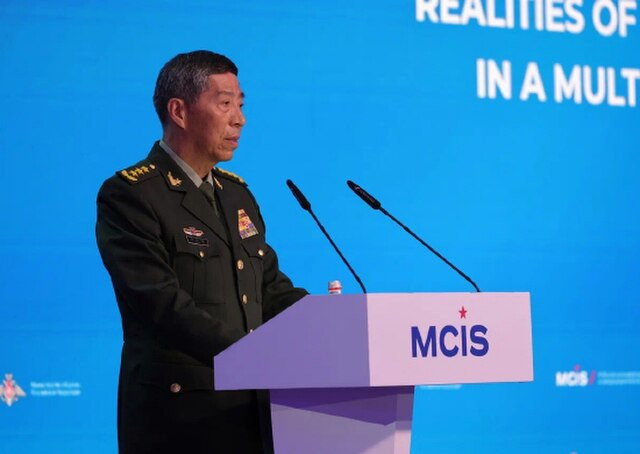In a series of mysterious events that have left the international community puzzled, several high-ranking Chinese officials, once favored by President Xi Jinping, have vanished from the public eye. The latest in this string of disappearances is Defence Minister Li Shangfu, who has been conspicuously absent from public events for several weeks.
General Li Shangfu, who previously oversaw arms procurement for the People's Liberation Army (PLA), is reportedly under investigation concerning military equipment purchases. This revelation comes on the heels of the removal of two top officials from the Rocket Forces, the military branch responsible for nuclear missiles, and a military court judge. While the official narrative cites "health reasons" for these absences, the lack of transparency has led to rampant speculation.
One prevailing theory suggests a crackdown on corruption within the PLA. The military's call for public tip-offs on corruption spanning the past five years, coupled with Xi's nationwide inspections of military bases, lends credence to this theory. James Char, a research fellow at Singapore's Nanyang Technological University, highlighted the challenges of rooting out corruption within the military, given China's centralized one-party system and the lack of public scrutiny.
However, another perspective points to China's deepening paranoia as it navigates its complex relationship with the U.S. The recent expansion of China's counter-espionage law, granting authorities more investigative power, and the public call for citizens to aid in combating spy activities, underscore this sentiment. The case of General Li mirrors that of Foreign Minister Qin Gang, whose sudden removal earlier this year was surrounded by whispers of an alleged extramarital affair resulting in a U.S.-born child.
Some analysts believe that these disappearances might be a manifestation of internal party pressures, especially as China grapples with economic challenges post-Covid. From one angle, these events could be interpreted as signs of instability within Xi's leadership. The rapid fall from grace of officials like General Li and Mr. Qin, both of whom were closely aligned with Xi, might indicate lapses in the president's judgment.
Conversely, others view these events as a testament to Xi's strength and control. Xi's extensive anti-corruption campaigns, which have targeted both low-level and top officials, are unparalleled in their scale since the era of Mao Zedong.
The broader implications of these disappearances remain to be seen. While they might instill a climate of fear, ensuring compliance, they could also lead to demoralization and the risk of groupthink, potentially affecting China's national security and foreign policy.
As tensions rise in the Taiwan Strait, with China increasing its military presence, the absence of key military and diplomatic figures could complicate communication and escalation management. However, some believe that the Chinese military leadership remains robust and can weather these changes.
In conclusion, while the exact reasons and implications of these disappearances remain shrouded in mystery, they undeniably highlight the opacity of the Chinese political system, fueling unease and speculation on the global stage.





